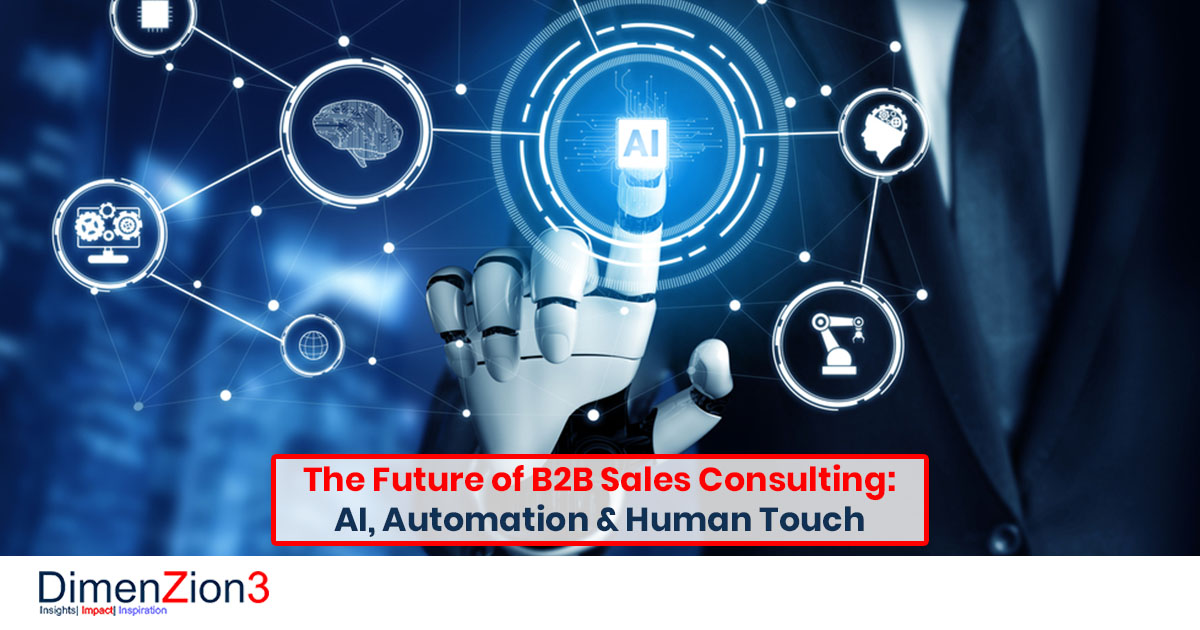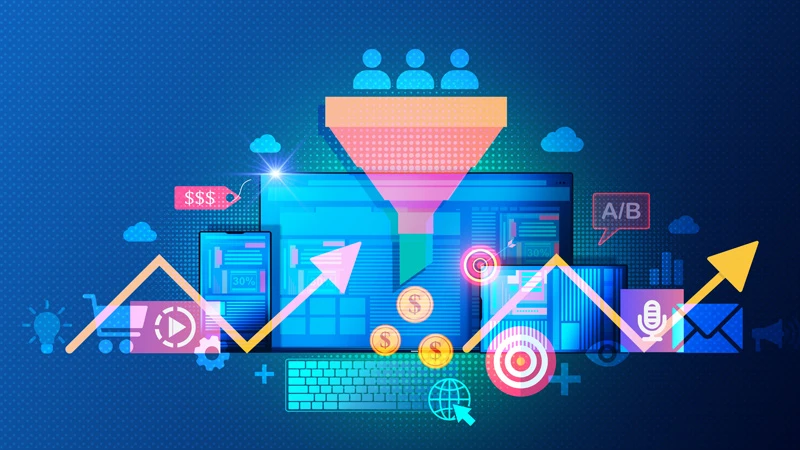The Future of B2B: Using AI Automation to Drive Success
The landscape of B2B is moving as companies significantly turn to AI automation for strategic advantage. This makeover guarantees to boost performance and consumer interaction with sophisticated innovations. Nevertheless, the integration of these devices is not without its obstacles. Comprehending how organizations can navigate this progressing surface will certainly be crucial for future success. What variables will establish the efficiency of AI in this field? The solutions might redefine conventional organization designs.
Comprehending AI Automation in B2B
As companies increasingly seek efficiency, understanding AI automation in B2B comes to be crucial. Growth Systems For B2B. AI automation refers to the usage of expert system technologies to enhance and enhance company procedures. In the B2B sector, this involves the integration of AI devices to manage jobs such as data evaluation, client interactions, and supply chain procedures. By leveraging device understanding and natural language handling, business can enhance accuracy, minimize human error, and quicken decision-making. Additionally, AI automation promotes the handling of big quantities of information, enabling services to extract important insights and enhance their procedures. As organizations navigate this technological landscape, a complete grip of AI automation's capabilities will equip them to remain affordable and responsive to market demands
Key Benefits of AI Automation for Businesses
While lots of companies come to grips with raising operational needs, AI automation presents many advantages that can markedly improve their performance. One substantial advantage is efficiency; AI systems can perform repeated tasks quicker and with higher accuracy than people, therefore releasing and lowering mistakes up workers for more strategic initiatives. Furthermore, AI automation allows data-driven decision-making by examining vast datasets rapidly, offering understandings that inform company approaches. Cost decrease is one more essential advantage, as automation minimizes labor costs and enhances resource allocation. AI can improve scalability, enabling companies to adjust to market adjustments promptly. Ultimately, the combination of AI automation fosters innovation, making it possible for companies to stay affordable in a quickly evolving landscape.
Changing Consumer Experiences With AI
AI is reshaping consumer experiences by improving and making it possible for tailored interactions involvement. With the execution of anticipating analytics, organizations can expect client needs and preferences, causing more customized services. Furthermore, enhancing support procedures with AI innovation enhances effectiveness and satisfaction, ultimately changing the total customer trip.
Personalized Communications and Engagement

Anticipating Analytics Implementation
As organizations increasingly seek to enhance customer experiences, carrying out predictive analytics has emerged as a crucial strategy in the B2B market. By leveraging data-driven understandings, companies can prepare for consumer demands and preferences, allowing them to tailor their offerings much more successfully. Predictive analytics makes use of innovative algorithms and historical information to forecast future actions, allowing services to recognize prospective challenges and chances. This aggressive approach not just improves consumer satisfaction however additionally cultivates loyalty by supplying prompt and relevant options. Furthermore, predictive analytics helps in source appropriation, making certain that advertising efforts are concentrated on high-value prospects. Inevitably, the integration of anticipating analytics furnishes B2B business with the devices essential to transform customer communications and drive long-lasting success in a significantly competitive landscape.
Streamlining Support Processes
Enhancing consumer experiences in the B2B sector expands beyond predictive analytics; streamlining support procedures plays a vital function. By integrating AI-driven remedies, businesses can boost and automate regular queries reaction times, leading to enhanced client contentment. Chatbots and online assistants provide 24/7 support, dealing with customer requires quickly and minimizing the worry on human agents. This automation enables groups to concentrate on complicated issues, cultivating even more meaningful communications. In addition, AI devices can analyze support data to identify trends and locations for improvement, ensuring continual enhancement of service top quality. B2B Automation Consulting. As organizations adopt these technologies, they position themselves as receptive and customer-centric, eventually driving commitment and organization growth in a progressively affordable landscape
Simplifying Workflow and Processes
Streamlining operations and processes in B2B settings is necessary for enhancing general effectiveness. By optimizing process efficiency and automating regular jobs, organizations can lower hand-operated mistakes and liberate useful sources. This shift not only enhances efficiency yet additionally enables groups to concentrate on strategic initiatives that drive development.
Optimizing Workflow Effectiveness
Maximizing operations efficiency is essential for services seeking to boost and minimize operational expenses productivity. By evaluating existing processes, companies can determine traffic jams and redundancies that impede efficiency. Carrying out structured treatments improves communication and partnership amongst teams, ensuring that tasks are completed extra swiftly. Utilizing data-driven insights makes it possible for business to make enlightened decisions that refine operations better. Furthermore, embracing incorporated innovations can facilitate seamless information flow, decreasing the risk of mistakes and delays. As organizations accept these adjustments, they not just promote a more dexterous workplace but likewise place themselves to react rapidly to market demands. Inevitably, concentrating on operations performance allows companies to designate sources effectively, driving long-lasting success in an increasingly competitive landscape.
Automating Regular Jobs
Several organizations are increasingly turning to automation to deal with routine jobs, recognizing its potential to substantially enhance functional efficiency. By deploying AI-driven remedies, business can streamline repetitive tasks such as data entrance, billing processing, and client questions. This change not only decreases human mistake but additionally liberates useful staff member time, enabling team to concentrate on value-added tasks and tactical campaigns. Furthermore, automation can boost reaction times and solution consistency, bring about improved client contentment. As companies browse an affordable landscape, leveraging automation for routine tasks ends up being necessary for maintaining and enhancing operations dexterity. Inevitably, this technique cultivates development and drives development, placing organizations for lasting success in the advancing B2B atmosphere.
Enhancing Decision-Making Through Information Insights
As organizations navigate a significantly complex landscape, leveraging information insights becomes necessary for informed decision-making. Minarik AI. By utilizing ai-driven devices and sophisticated analytics, organizations can change raw data into actionable knowledge. This enables them to determine fads, projection market modifications, and enhance strategies based upon real-time information. Improved decision-making procedures rely on information visualization methods, allowing stakeholders to quickly make and interpret intricate datasets swift, evidence-based choices. Additionally, understandings originated from client habits and market dynamics encourage firms to tailor their offerings, improving customer complete satisfaction and driving growth. Inevitably, using data insights not only boosts decision-making efficacy however additionally settings businesses to continue to be competitive in a quickly evolving marketplace
Overcoming Challenges in AI Execution
Although AI execution holds the assurance of substantial operational renovations, organizations usually deal with a myriad of difficulties that can hinder progress. Secret obstacles include data top quality issues, as lots of ventures struggle with incomplete or irregular datasets required for efficient AI training. Additionally, resistance to transform within the workforce can hamper the adoption of AI technologies, as employees may fear work variation or do not have the required abilities. Budget restrictions additionally present a difficulty, restricting investment in the required facilities and skill. Moreover, integrating AI systems with existing procedures can be complex, requiring considerable time and sources. Overcoming these obstacles necessitates a tactical strategy that includes detailed training, adjustment monitoring, and a dedication to continual renovation in AI initiatives
Future Trends: The Following Frontier in B2B Automation
While the landscape of B2B automation proceeds to evolve, arising trends are poised to redefine how organizations run. The integration of advanced expert system will certainly facilitate extra customized client experiences, enabling services to tailor options specifically to customer demands. The rise of predictive analytics will certainly enable companies to prepare for market changes and optimize decision-making processes. Automation of routine tasks with robot procedure automation (RPA) will certainly improve efficiency, lowering functional prices significantly. Furthermore, the fostering of blockchain modern technology promises boosted transparency and safety and security in deals. As these developments gain grip, business will increasingly take advantage of AI-driven insights to foster cooperation, simplify supply chains, and boost general productivity, marking a transformative shift in the B2B landscape.
Frequently Asked Concerns
What Kinds of Services Can Benefit Many From AI Automation?

Exactly How Can Small Companies Apply AI Automation Efficiently?
Small companies can apply AI automation efficiently by determining repetitive jobs, selecting user-friendly devices, guaranteeing sufficient training for staff members, and progressively integrating solutions to optimize process while monitoring efficiency and changing methods based upon responses.
What Prevail Mistaken Beliefs About AI in B2B?
Common misunderstandings about AI in B2B consist of the idea that it is only for large business, that it guarantees instantaneous outcomes, and that it can totally replace human decision-making as opposed to augmenting it.
Just How Does AI Automation Influence Worker Responsibilities and Job Safety?
AI automation improves staff member functions by simplifying recurring jobs, cultivating performance and advancement. While some anxiety work see loss, it typically produces possibilities for upskilling and new settings, inevitably enhancing work security via included value and performance.
What Skills Are Required to Manage AI Automation Projects?
To take care of AI automation tasks, people need strong logical skills, job monitoring expertise, efficiency in data analysis, understanding of machine learning principles, efficient interaction capacities, and flexibility to swiftly changing technological environments. These skills ensure successful implementation.
As organizations increasingly seek efficiency, recognizing AI automation in B2B becomes important. AI automation helps with the handling of big quantities of data, making it possible for services to extract beneficial insights and optimize their operations. While numerous businesses grapple with raising operational needs, AI automation offers various benefits that can markedly improve their efficiency. Automation of routine jobs via robot process automation (RPA) will improve efficiency, minimizing operational costs significantly - Minarik AI. Manufacturing, logistics, and client service businesses can benefit most from AI automation